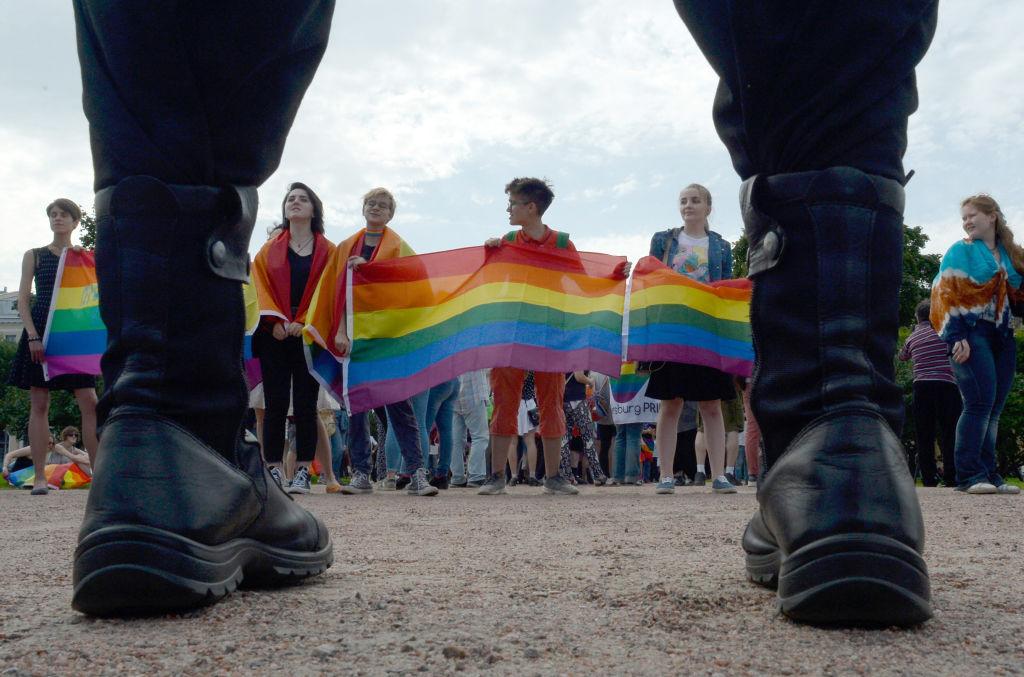LGBTI rights remain contested globally, and recent political trends reveal a regression in Russia, Latin America, the Middle East, Africa, and parts of Eastern Europe. Central concern for LGBTI communities in many countries is not yet framed as a cause to gain equality, but rather to combat legal persecution and extreme violence. Just in March, the sultan of Brunei established a law that requires gay, bisexual, and transgender people to be stoned to death.
Many world leaders swiftly condemned Brunei’s new law. United Nations High Commissioner for Human Rights Michelle Bachelet appealed to the government to not enforce “this draconian new penal code,” and called for a “moratorium on the use of capital punishment.” Amnesty International urged the South Asian country to “immediately halt” implementing the new penalties. Celebrity activists, NGOs, human rights groups, and international diplomats all denounced the law.
As is common with the introduction of a highly controversial new law in a small country, larger powers in the international system are quick to voice harsh condemnation. By contrast, old laws in place for decades in countries such as Nigeria or Pakistan do not draw the same ire.
Similarly, the international community is largely silent toward anti-human rights laws promulgated by powerful nations, such as Saudi Arabia or China, that hold more strategic importance to allied partners.
While diplomatic efforts are not applied evenly to all countries, the diplomatic promotion of LGBTI rights remains of vital importance to local activists in Brunei and other nations who work under threat of imprisonment and violence.
Pushback of LGBTI Rights
Unfortunately, Brunei is part of a broader global trend of nations denying LGBTI persons basic human rights. The Ugandan parliament passed anti-LGBTI laws in 2013 that, according to Human Rights Watch, have led to “a notable increase in arbitrary arrests, police abuse and extortion, loss of employment, evictions and homelessness, and scores have fled the country.”
In Chechnya, LGBTI people are rounded up and tortured. In Egypt, LGBTI people face harsh repression personally and for their public activism. In Russia, 63 percent believes gays are conspiring to subvert the country’s traditional values, according to a recent survey by the state-run Russian Public Opinion Research Center.
There is no clear dividing line, however, between LGBTI rights in the global north and south. In September, India ended its colonial-era ban on gay sex. In addition, there is a great amount of transnational activism and work by NGOs in places such as South Africa, where local activists are making strides to change incremental local laws and social practices. Moreover, there is a powerful and influential global movement that works beyond borders for equality in all regions.
Promoting LGBTI Rights
Canada, Sweden, Norway, the Netherlands, France, the United States, and a handful of other countries are advocates for LGBTI rights in foreign affairs. Amplifying the work of transnational advocates, diplomats from these nations leverage their positions of influence in the international arena to promote LGBTI rights.
Collectively, many of these nations provide funding to the Global Equality Fund, the largest international fund advocating for LGBTI civil society worldwide, including emergency protection for human rights defenders who face physical threats. The United States is a central donor to the fund.
The U.S. began promoting LGBTI rights in 2011 under former-Secretary of State Hillary Clinton. This U.S. support first manifested in changing bilateral relations with Uganda when that country proposed the death penalty for homosexuality. In February, the Donald J. Trump administration surprised human right advocates and critics alike by continuing the effort to end the criminalization of homosexuality. In Berlin, U.S. Ambassador Richard Grenell, an openly gay man, renewed the State Department’s efforts to push for decriminalization of homosexuality globally.
LGBTI rights is a broad term that can denote different concepts in different countries. In many Western nations, it refers to marriage equality and ending discrimination in housing and the workplace. On a global scale, most LGBTI persons are still fighting for their lives and freedom.



